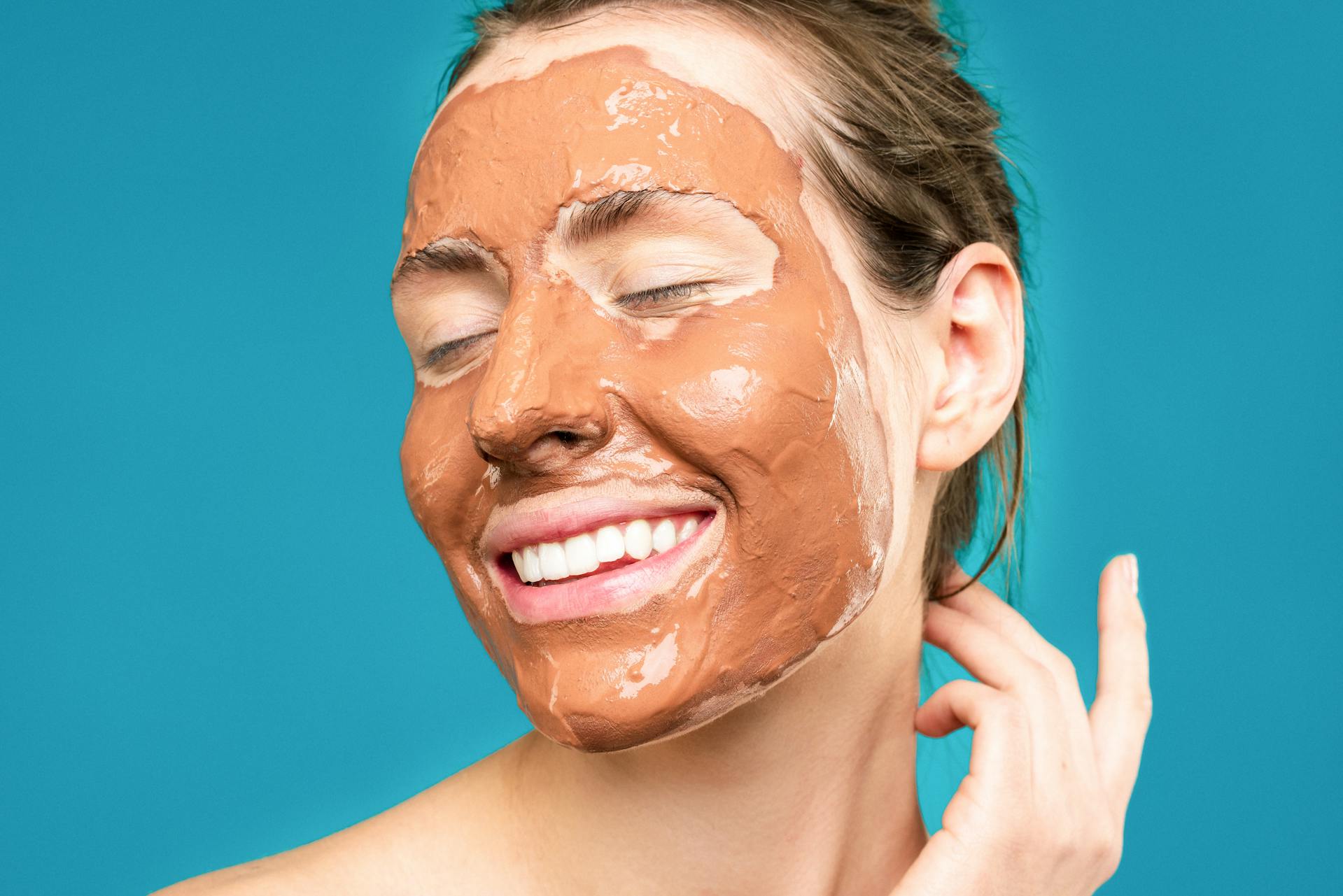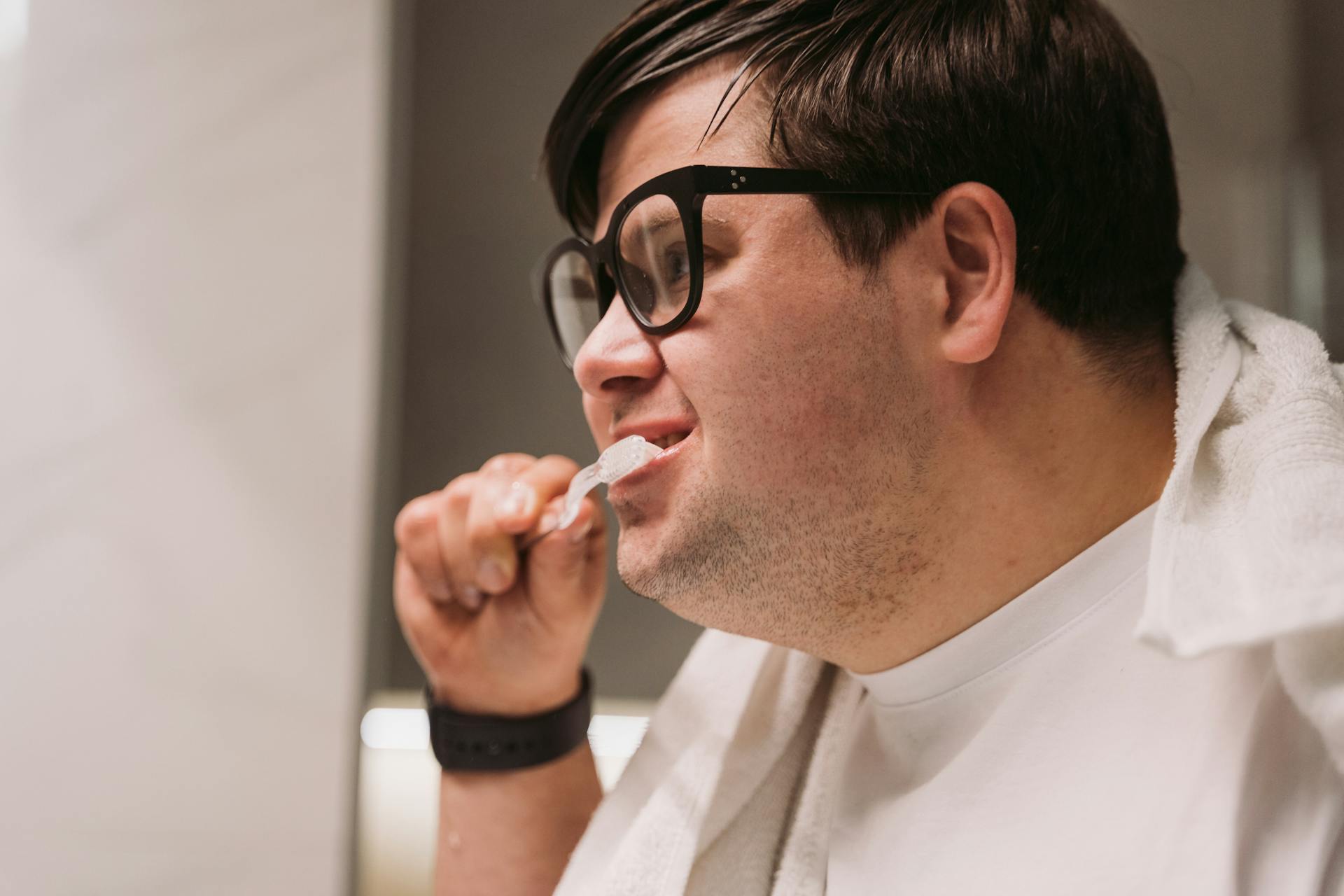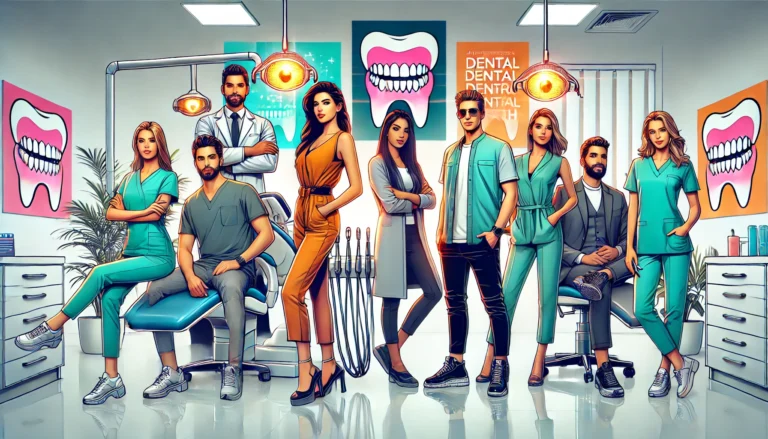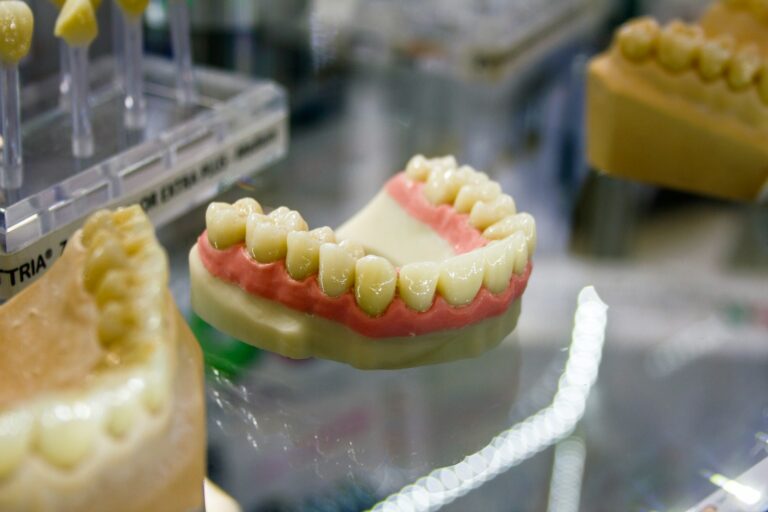
Veneers have gained significant popularity among individuals looking to achieve a flawless smile, yet there are frequently questions regarding their reversibility. Are veneers reversible? This article delves into the possibility of removing veneers and the various factors that may affect their reversibility.
It outlines the numerous advantages that veneers provide, including enhanced appearance and durability, while also addressing potential risks, such as tooth sensitivity. Additionally, you will find valuable care tips to help maintain your veneers and ensure that your smile remains beautiful and long-lasting.
Are Veneers Reversible?

Veneers have become a popular option in cosmetic dentistry, specifically crafted to enhance the aesthetics of one’s smile.
A common question that often arises is whether veneers are reversible. It is important for patients considering this dental procedure to understand the different types of dental veneers, including porcelain and composite options.
Unlike other cosmetic enhancements, some types of veneers may require irreversible alterations to the teeth, potentially impacting dental health and future treatment choices.
Therefore, it is essential to consult with dental professionals who can assess your individual case and recommend the best approach for achieving your desired smile makeover.
What Factors Contribute to Veneer Reversibility?
Several factors play a crucial role in determining the reversibility of veneers, with a primary focus on tooth enamel and preparation methods. The extent of tooth alteration during the veneer placement procedure greatly influences whether the dental veneers can be reversed.
When minimal tooth preparation is required, there is a greater likelihood of preserving the original tooth structure, which allows for future restorative options. However, if extensive enamel removal is necessary, patients may encounter oral health risks and limited opportunities for aesthetic enhancements later on.
The techniques employed during the application of veneers can vary significantly among dentists, which in turn affects the potential for reversibility. For example, some practitioners prefer no-prep or minimal-prep techniques, which are aimed at conserving as much enamel as possible, thus promoting a more reversible outcome.
Additionally, the quality of the materials used and the precision of the bonding technique can greatly influence patient satisfaction and the longevity of the veneers. A well-planned treatment strategy that considers these factors not only ensures aesthetic appeal but also prioritises the health and integrity of the underlying tooth structure, ultimately leading to greater satisfaction for patients.
Can Veneers Be Removed?
Yes, veneers can indeed be removed, but the specifics of the process largely depend on the type of veneers and the bonding agents used during their application. Typically, dental professionals handle veneer removal during a scheduled appointment, prioritising patient comfort and safety throughout the procedure.
It is important to understand the recovery time associated with veneer removal, as this can impact any subsequent treatment options and overall dental health. Therefore, consulting with a dentist about the feasibility and implications of veneer removal is essential for making informed decisions.
For example, the removal of porcelain veneers often requires more precision and care due to their durability, which may necessitate the use of specialised tools to prevent damage to the underlying enamel. In contrast, composite veneers are generally easier to remove and usually pose less risk to the tooth structure beneath.
Patients’ experiences during this process can vary. Many feel a sense of relief knowing that a dental professional is managing the removal, which can greatly enhance their overall satisfaction. After the removal, some sensitivity may occur, but dental professionals will provide guidance on how to manage these effects and ensure optimal healing for any future treatments that may be required.
What Are the Benefits of Veneers?

Veneers provide a wide range of benefits for those looking to enhance their smiles and undergo a complete smile makeover. One of the main advantages is the improvement in smile aesthetics, enabling individuals to achieve a brighter and more uniform appearance.
This cosmetic procedure is especially appealing because it is minimally invasive, often requiring little to no alteration of the tooth structure, which helps to preserve the tooth enamel.
Additionally, dental veneers can produce remarkably positive cosmetic results, contributing to increased confidence in one’s smile and promoting better overall dental health.
1. Improved Appearance
One of the most notable advantages of veneers is their remarkable ability to enhance one’s appearance, significantly improving dental aesthetics and contributing to an appealing smile design. Crafted from high-quality materials such as porcelain or composite, veneers mimic the natural look of tooth structure, ensuring that a person’s smile appears both beautiful and authentic.
This cosmetic enhancement can lead to heightened self-esteem and a more confident demeanour in social interactions.
The transformative effects of veneers extend beyond just appearances; they can have a substantial impact on an individual’s psychological well-being. When people are pleased with their dental appearance, they tend to smile more freely, which cultivates a positive self-image and encourages social engagement.
This newfound confidence often spills over into various aspects of life, including personal relationships and professional opportunities. The importance of cosmetic procedures in smile transformation is significant, as they help align one’s inner self with their outer persona, enableing individuals to present their best selves to the world.
2. Stain Resistance
Veneers are well-regarded for their stain resistance, making them an excellent option for those who wish to maintain a bright and white smile. Unlike natural teeth, which are often vulnerable to discolouration from various foods, beverages, and other factors, veneers effectively combat staining.
This quality can significantly reduce the need for frequent teeth whitening treatments. With proper dental care and a consistent maintenance routine, patients can enhance the stain-resistant properties of their veneers, allowing them to enjoy their radiant smiles for an extended period.
This resistance not only helps preserve the aesthetic appeal of the veneers but also minimises the time, effort, and costs associated with managing tooth discolouration. By opting for veneers, individuals can indulge in their favourite foods and beverages without the constant concern of staining, making social situations much more enjoyable.
Regular maintenance and good oral hygiene are crucial in this process, ensuring that the quality of the veneers is maintained while also contributing to overall dental health.
Ultimately, investing in veneers can be a significant step towards achieving a long-lasting, luminous smile that reflects both confidence and care.
3. Durability
Durability is one of the key advantages of veneers, especially when we consider their lifespan and the materials from which they are made. For example, porcelain veneers are renowned for their strength and durability, often lasting between 10 to 15 years with proper care. This impressive longevity makes them a popular choice among patients looking for long-term cosmetic solutions, as they can endure everyday wear and tear without sacrificing their visual appeal.
It is important to manage patient expectations regarding durability through comprehensive consultations and a clear understanding of the bonding agents involved.
On the other hand, composite resin veneers also provide a durable option, although they typically have a shorter lifespan, averaging about 5 to 7 years.
Several factors can influence how long veneers last, including the patient’s oral hygiene routine, dietary choices, and habits such as teeth grinding. Regular dental check-ups are essential for maintaining the integrity of veneers, as they allow for the timely identification and resolution of any potential issues before they escalate.
Patients should also be mindful that lifestyle choices, such as smoking and the consumption of acidic foods, can affect the lifespan of their veneers. Therefore, adhering to care recommendations is vital for achieving optimal results.
4. Minimal Tooth Alteration
One of the notable features of veneers is that they typically require minimal alteration of the natural tooth compared to other cosmetic procedures, which often involve considerable removal of enamel. This advantage allows dentists to preserve more of the tooth’s natural structure during the preparation phase, making veneers a more attractive option for individuals who are concerned about irreversible changes to their teeth.
Furthermore, advancements in veneer technology have led to the development of reversible options, enabling patients to maintain their enamel and overall dental health.
This preservation not only extends the lifespan of the patient’s natural teeth but also significantly enhances comfort during and after the procedure. With the latest innovations in dental technology, such as no-prep veneers, this difference becomes even more pronounced.
These options facilitate a less invasive approach without compromising aesthetic outcomes.
Patients can achieve beautifully aligned teeth while retaining their original enamel, which is essential for protecting against sensitivity and decay. Additionally, these improvements in techniques can reduce the time spent in the dental chair, contributing to a more pleasant overall experience and reinforcing the shift towards patient-centred care in modern dentistry.
What Are the Risks of Veneers?

Whilst veneers provide many advantages, it is important to recognise the potential risks associated with this cosmetic procedure.
One of the main concerns is tooth sensitivity, which may arise after the placement of veneers due to the changes made to the tooth structure during the bonding process. Furthermore, if proper oral hygiene is not maintained, there is a heightened risk of decay, as veneers can present specific challenges when it comes to cleaning around their edges.
Understanding these risks is vital for patients contemplating veneers, as it enables them to make informed decisions regarding their dental health.
1. Tooth Sensitivity
Tooth sensitivity is a common concern that some patients may encounter after receiving veneers. This sensitivity often arises due to the dental procedure and the alteration of the tooth structure. Patients may find that consuming hot or cold foods and drinks triggers this sensitivity, making it important to be aware of this potential side effect.
Recovery time can vary from individual to individual; however, proper post-treatment care and diligent oral hygiene can significantly reduce discomfort and enhance the overall patient experience.
Several factors contribute to this sensitivity, including:
- the extent of enamel removal during the preparation process,
- the materials used for the veneers,
- and each person’s individual pain threshold.
To alleviate sensitivity, patients are advised to use toothpaste designed for sensitive teeth, avoid extreme temperature fluctuations, and keep up with regular dental check-ups.
Being mindful of dietary choices and adhering to the dentist’s post-treatment instructions can facilitate a smoother recovery process. It is helpful to understand that some discomfort is both normal and temporary, as this knowledge can better prepare patients mentally and ultimately enhance their journey towards achieving a beautiful smile.
2. Increased Risk of Decay
One notable risk associated with veneers is the potential for increased decay, particularly if patients do not adhere to proper dental care and oral hygiene practices. The bonding agents used during the placement of veneers can sometimes create tight spaces between the veneer and the tooth, making it challenging to clean effectively. Without a diligent maintenance routine, plaque build-up can occur, leading to decay. This highlights the importance of regular dental check-ups to monitor oral health.
To mitigate this risk, individuals should prioritize their dental hygiene by brushing twice daily and flossing regularly, ensuring that every surface of their teeth is thoroughly cleaned.
Fortunately, advancements in veneer technology now provide materials and designs that are more resistant to decay and easier to maintain. Dental professionals often recommend using specific tools, such as interdental brushes or water flossers, to effectively reach those hard-to-clean areas.
Routine visits to the dentist are essential to identify early signs of potential issues, allowing for preventive measures to be implemented, thus preserving both the appearance and health of one’s smile.
3. Potential for Damage
Veneers are indeed durable, but they can still be susceptible to damage due to various factors such as poor oral habits or accidental trauma. While these cosmetic enhancements are designed to endure the demands of daily use, it is important for patients to have realistic expectations regarding their lifespan and the possibility of needing to have them removed or replaced over time.
Being informed about the types of bonding agents used can also provide insight into the longevity and resilience of their veneers against potential damage.
Moreover, dietary choices and habits like teeth grinding can significantly impact the durability of veneers. Consuming hard foods, such as nuts or ice, poses a risk of chipping or cracking the porcelain, while excessive grinding or clenching may lead to misalignment or dislodgement of the veneers.
This is why it is essential for patients to have open conversations with their dental professionals about maintaining optimal oral habits and understanding the potential risks associated with veneer wear.
Ultimately, taking the initiative to educate oneself on proper care for veneers can result in better outcomes and prolong their lifespan, ensuring a beautiful smile for years to come.
How Can You Care for Veneers?

Caring for your veneers is crucial for ensuring their longevity and preserving the aesthetic enhancements they offer. It is important to adopt good oral hygiene practices, such as regularly brushing and flossing, to prevent plaque build-up and maintain the bond between the veneers and your natural teeth.
Moreover, scheduling regular dental check-ups is beneficial, as it allows dental professionals to monitor both your veneers and your overall dental health. This proactive approach helps ensure that your smile continues to shine brightly long after your smile makeover.
1. Good Oral Hygiene
It appears there has been an error in the content provided. Please check the information again and share the correct text you would like rewritten.
2. Regular Dental Check-ups
Scheduling regular dental check-ups is essential for maintaining the health and longevity of your veneers. These appointments allow dental professionals to assess their condition and ensure your overall oral health remains optimal, helping to safeguard your investment given the cost of veneers.
During these visits, your dentist can make necessary adjustments, check for any potential oral health risks, and provide personalised recommendations tailored to your specific type of veneers. This proactive approach helps keep your smile looking vibrant and prevents potential issues that could lead to expensive repairs.
These check-ups also provide an opportunity to discuss concerns such as discomfort or changes in appearance. Identifying issues early can help avoid significant damage and additional costs down the line.
Additionally, dentists offer valuable guidance on care routines and lifestyle choices that can extend the lifespan of veneers, further enhancing the value of this cosmetic investment. By prioritising regular dental visits, you can maintain both your veneers and your overall dental health for years to come.
3. Avoiding Certain Foods and Habits
To ensure the longevity of your veneers, it is essential to avoid certain foods and habits that may contribute to wear and damage. Hard or sticky foods can place excessive pressure on the veneers, potentially resulting in chips or loosening.
Additionally, habits such as nail-biting or teeth grinding can negatively impact the condition of your veneers. By being mindful of your dietary and lifestyle choices, you can greatly enhance your dental care and preserve the beauty of your smile.
Specifically, it is advisable to avoid crunchy snacks like popcorn or ice, as the significant forces they exert can compromise the structural integrity of the materials used in veneers. Furthermore, sugary foods pose a risk by promoting plaque build-up, which can lead to discolouration over time. Staying properly hydrated and choosing softer alternatives, such as yoghurt or smoothies, can benefit not only your overall health but also help maintain the shine and form of your veneers.
By adopting these straightforward yet effective habits, individuals can help ensure that their veneers remain in excellent condition for many years to come.
Frequently Asked Questions
Are Veneers Reversible?
No, veneers are not typically reversible. This means that once they are placed on your teeth, they cannot be removed without damaging the underlying teeth.
What are veneers?
Veneers are thin, tooth-colored shells that are placed over the front surface of teeth to improve their appearance. They can be made of porcelain or composite resin materials.
Why are veneers not reversible?
Veneers are not reversible because they require the removal of a small amount of tooth enamel to be placed. This makes it impossible for the original teeth to be restored to their natural state.
Can veneers be removed?
In rare cases, veneers can be removed, but it can be a complicated and costly process. The underlying teeth may also be damaged in the removal process.
How long do veneers last?
With proper care and maintenance, veneers can last anywhere from 10-15 years. However, they may need to be replaced sooner if they become damaged or if the underlying teeth experience decay or damage.
What are the alternatives to veneers?
If you are looking for a reversible option to improve the appearance of your teeth, you may want to consider dental bonding or teeth whitening. These options do not require the removal of enamel and can be reversed if desired.






